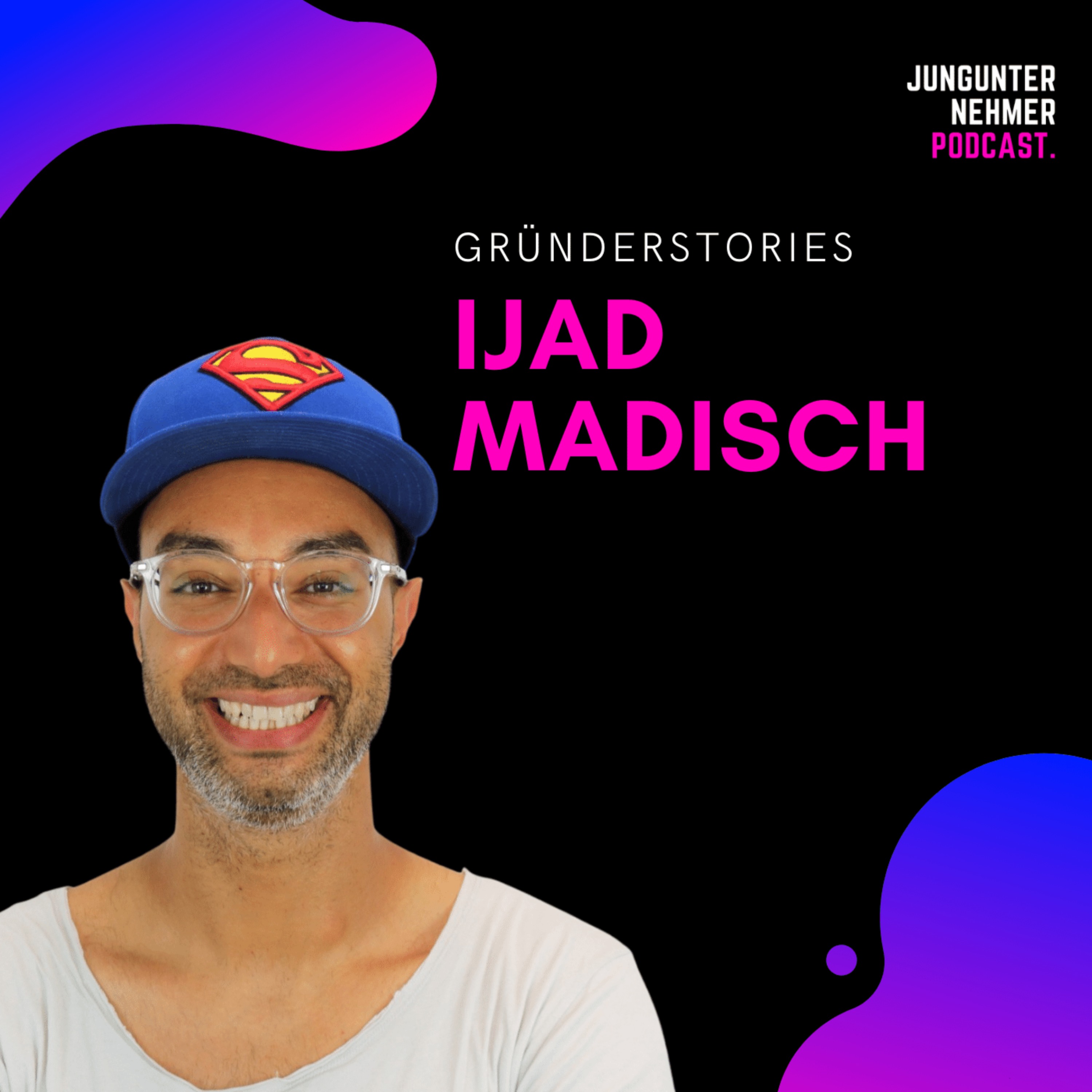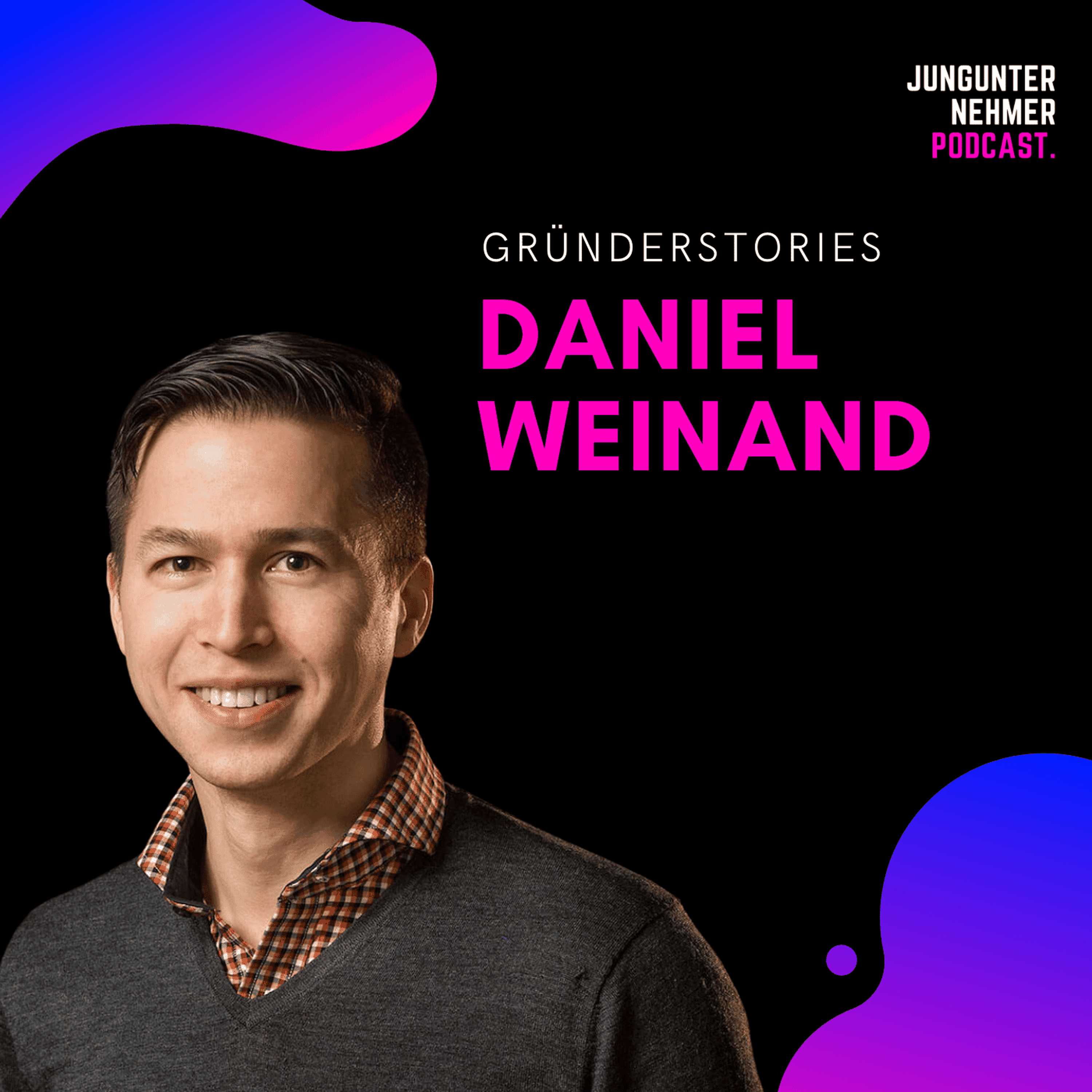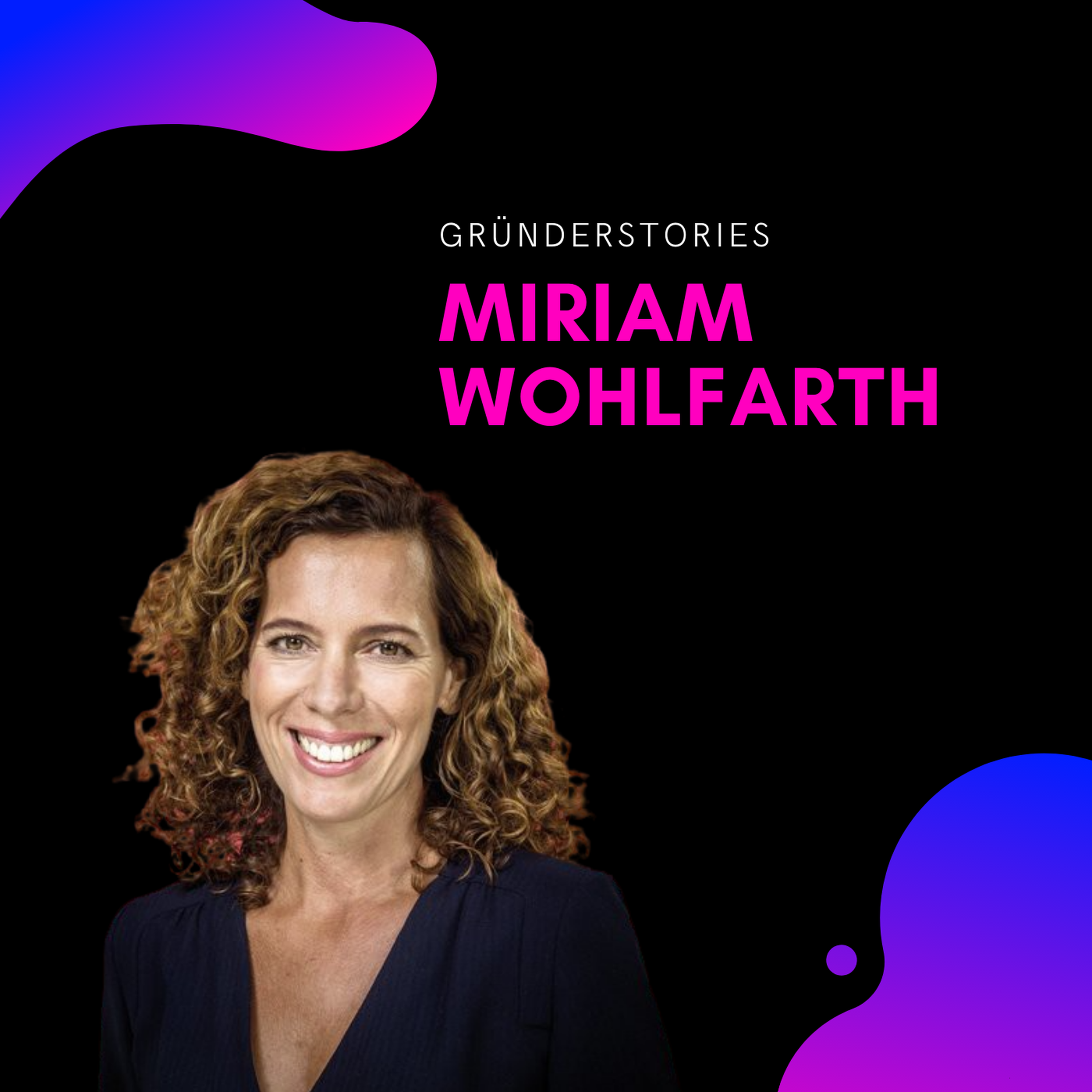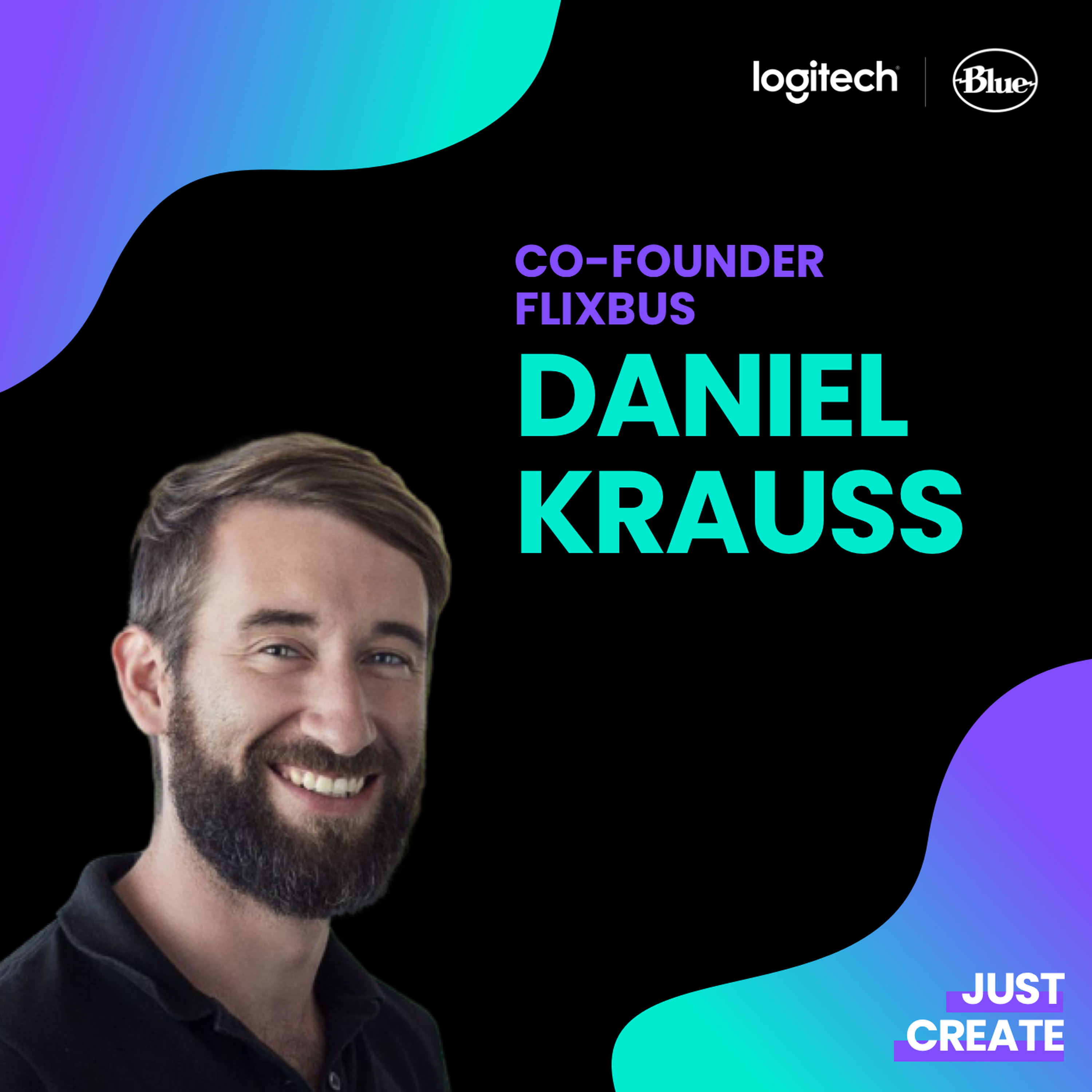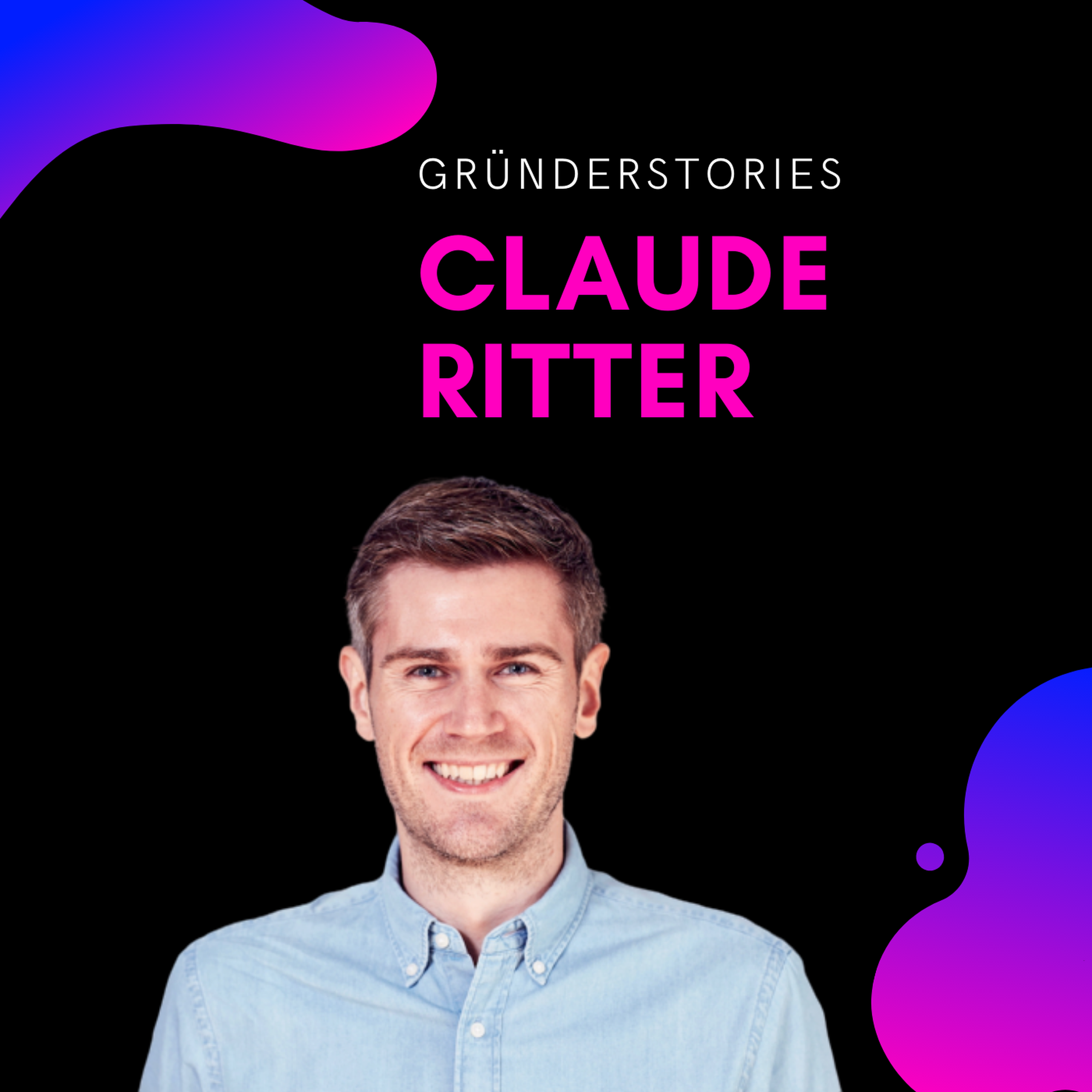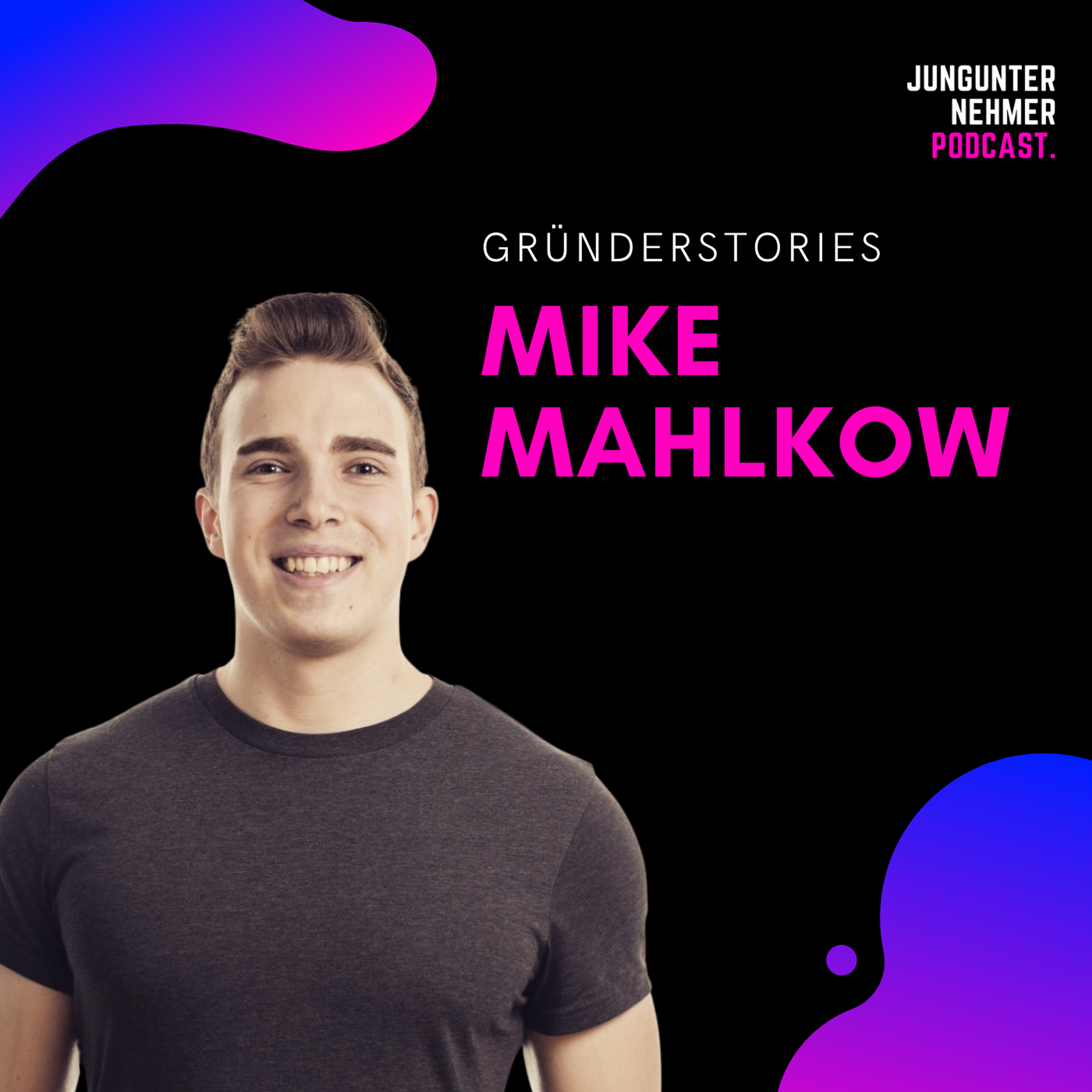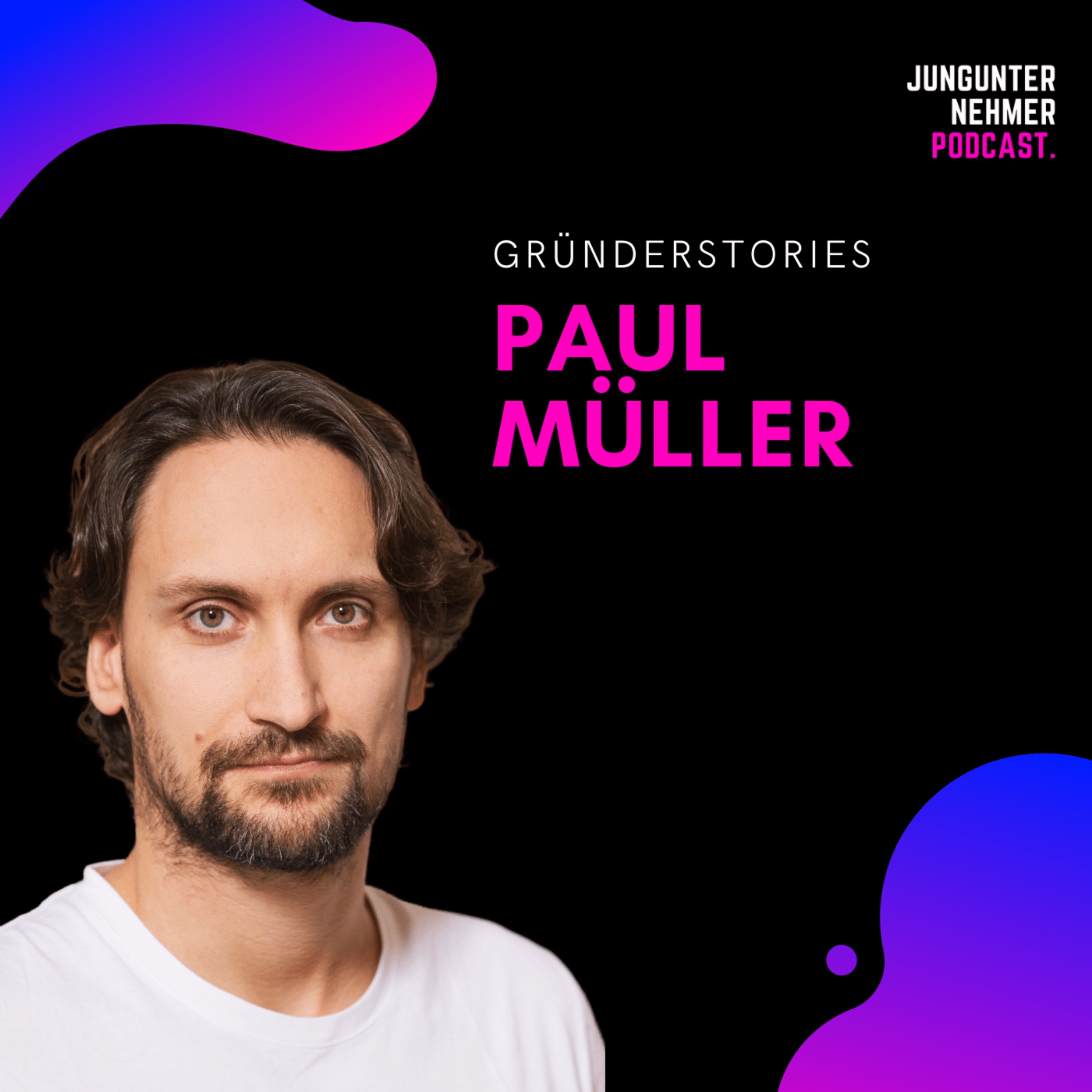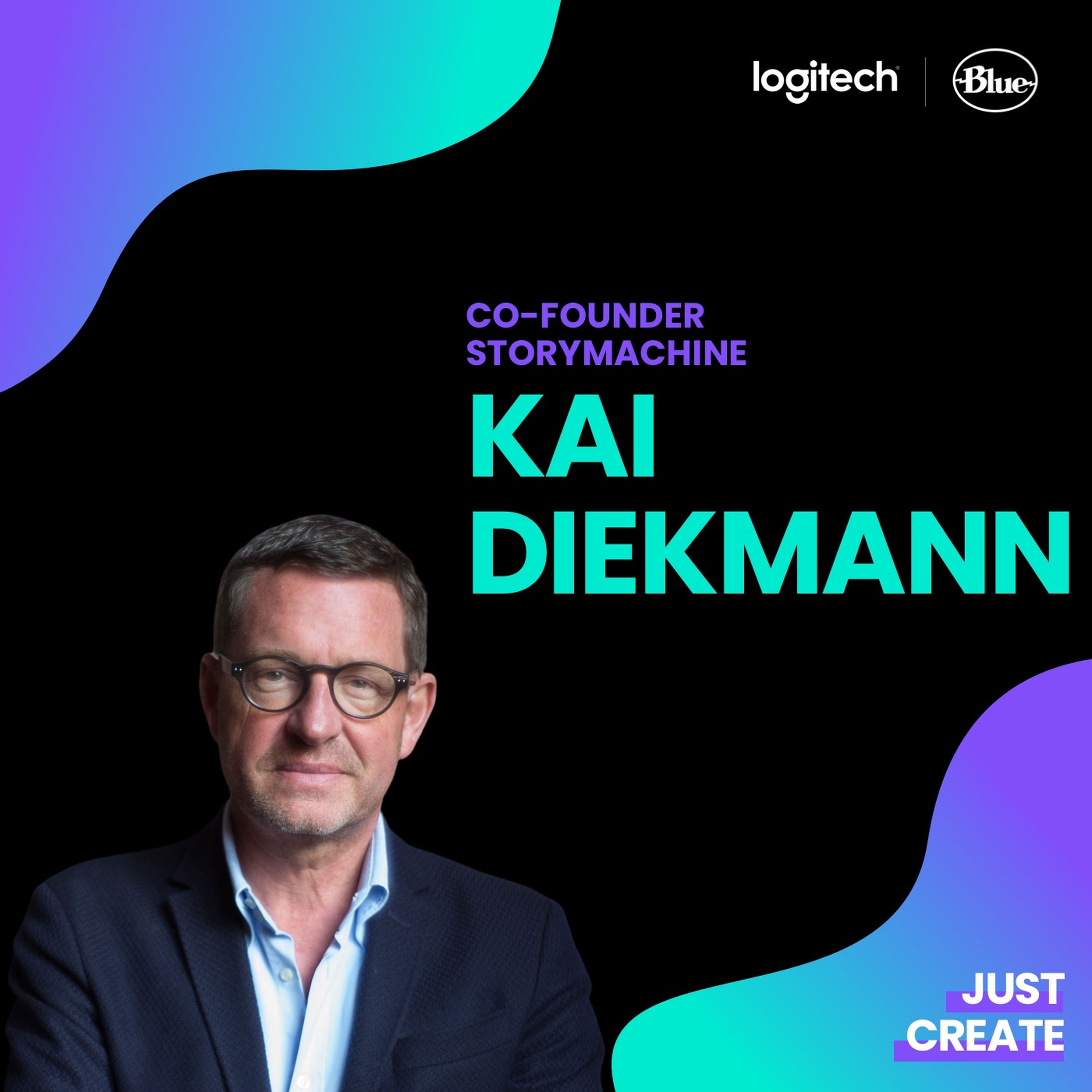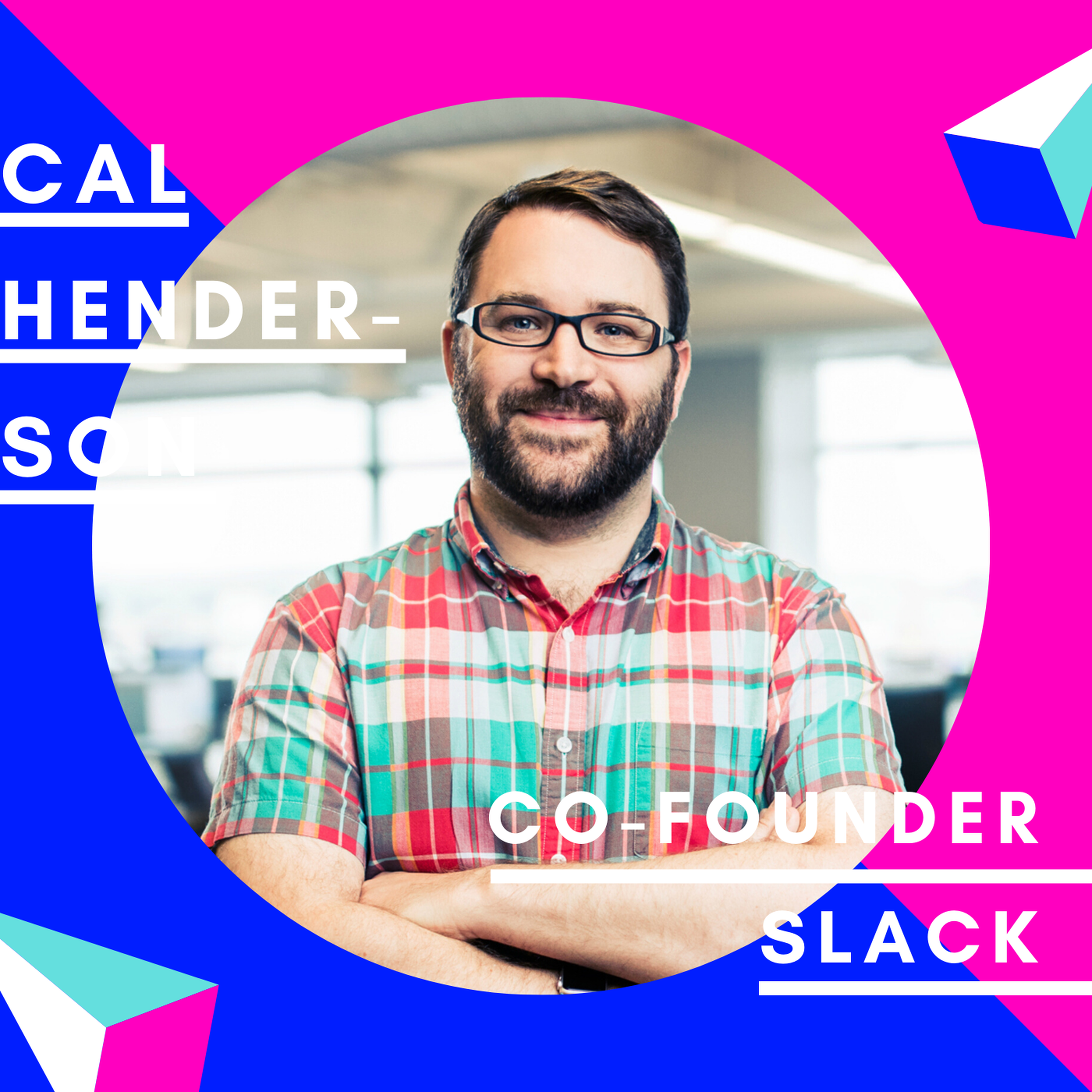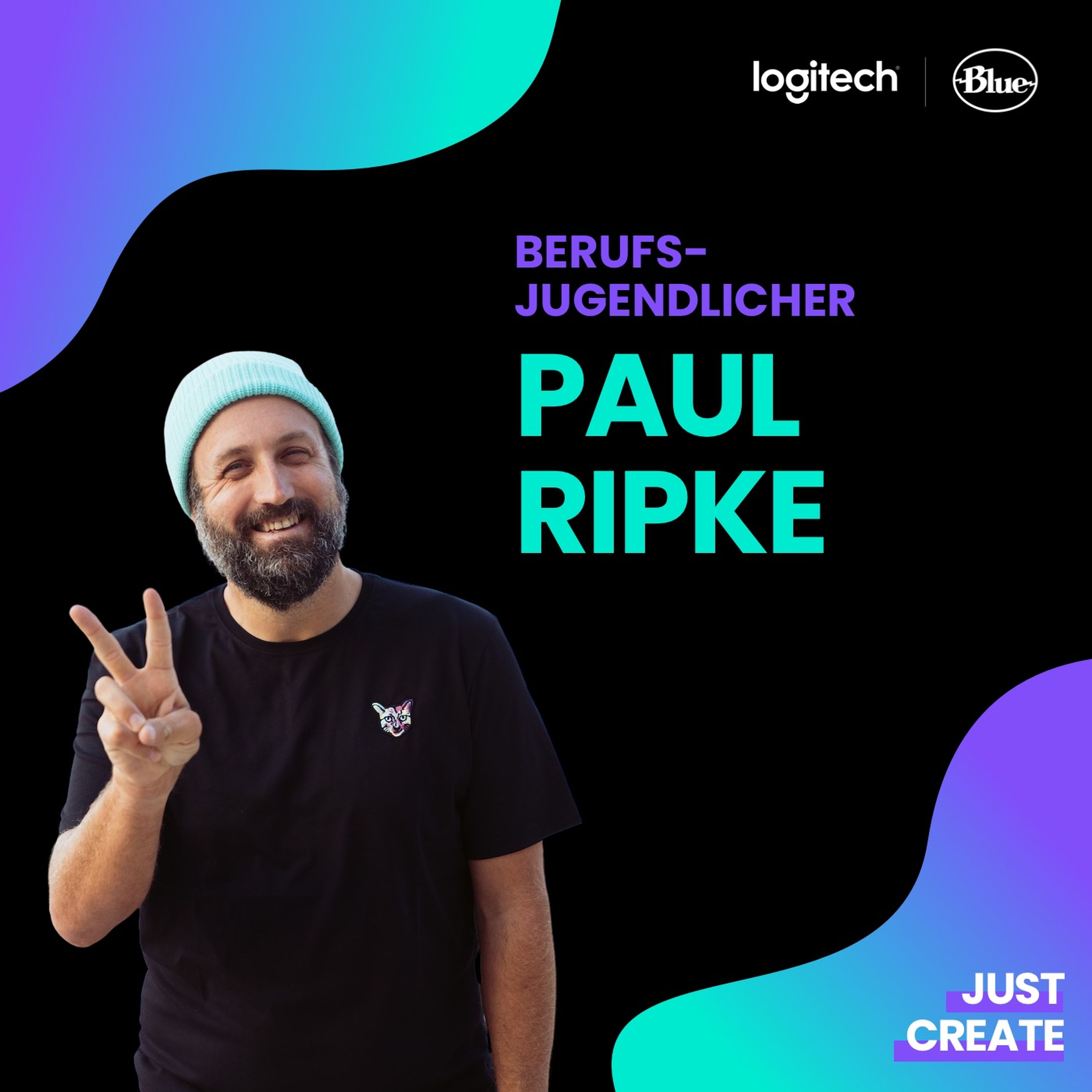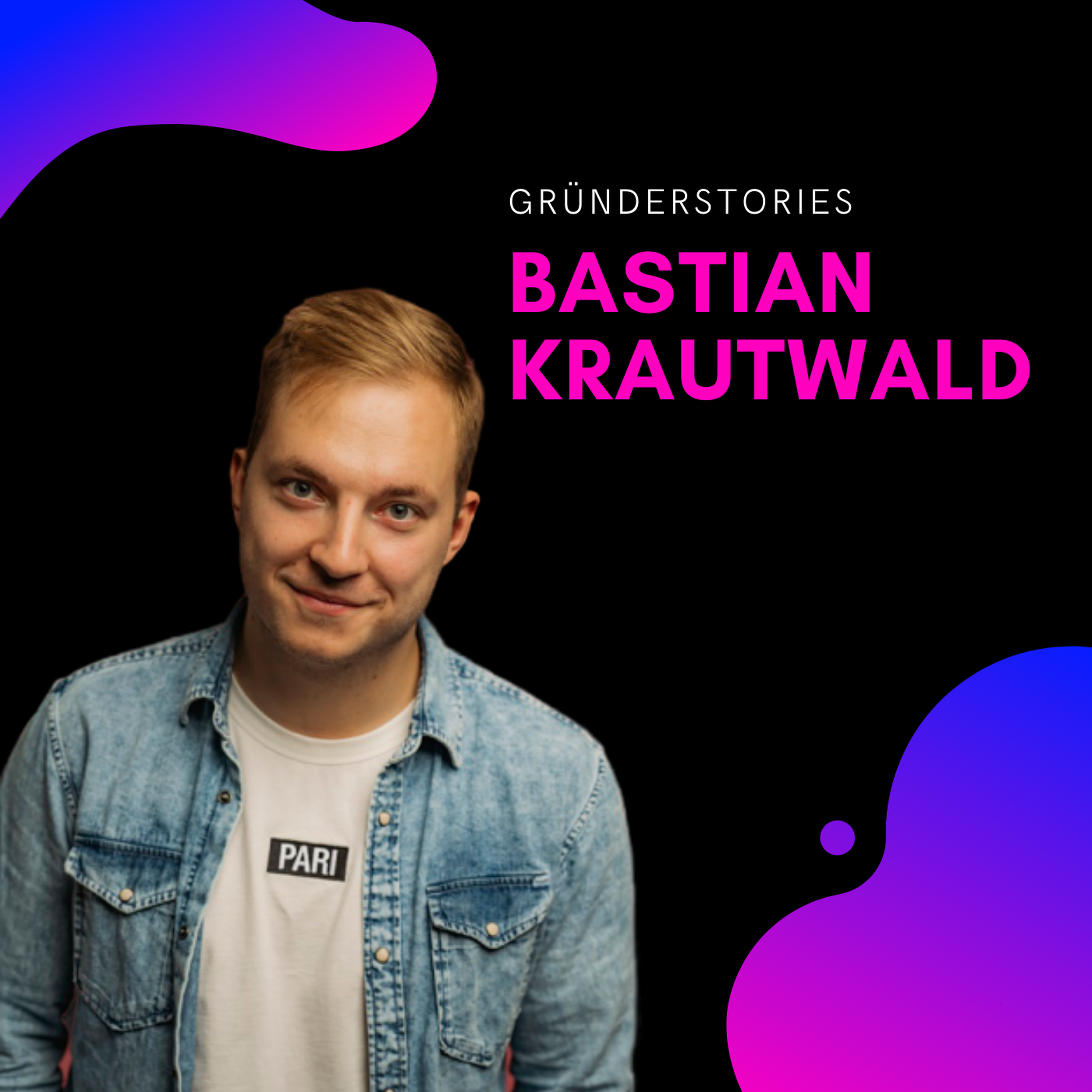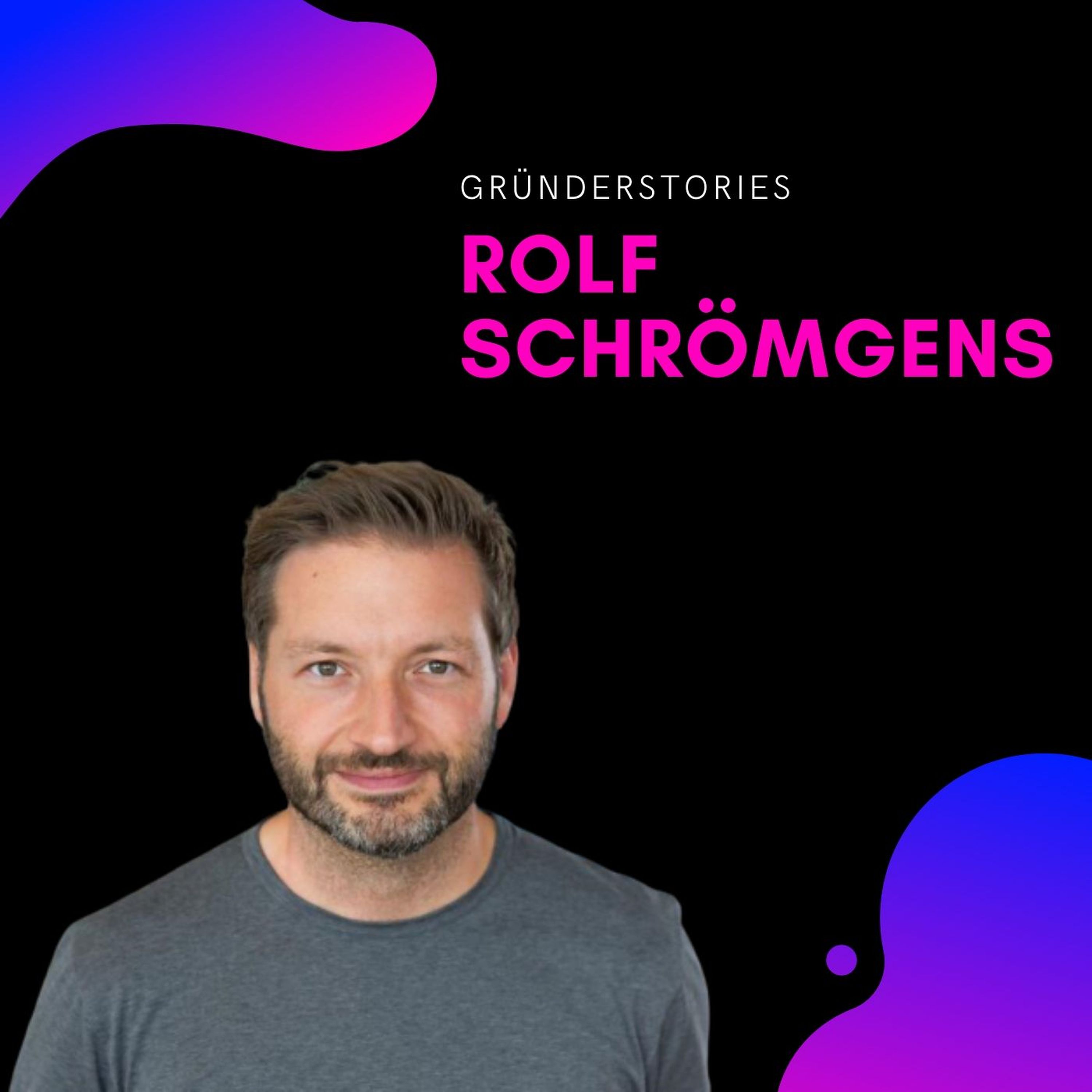Master Educational Short Form Content: How HarperCarrollAI won 400k Instagram Followers in 13 Months without losing content depth
In this episode, Harper Carroll, one of the most prominent voices in AI education, joins for a deep dive into the art of creating educational content, and how she built an impressive following of over 400,000 people in just one year.
She reveals the behind-the-scenes strategies that helped her viral content stand out in a world dominated by flashy, fast-paced trends and why staying true to her calm, research-based teaching style has resonated with so many.
What you’ll learn:
The Art of Educational Content Creation:
- How Harper transitioned from technical guides to short-form Instagram content while maintaining depth and clarity.
- Why creating for yourself—not the audience—leads to the most authentic and impactful content.
- The strategies behind her viral “10 Days of AI Basics” series and why it brought her 250,000 followers from a single video.
AI in Everyday Life:
- Harper’s favorite AI tools, including Claude, Perplexity, Gamma, and Descript, and how they simplify her workflows.
- Surprising ways AI can enhance productivity, from crafting emails to creating slide decks and streamlining content production.
- How AI tools can revolutionize learning for children and adults alike by fostering curiosity and enabling personalized education.
Building a Unique Content Style:
- Why Harper avoids flashy editing and relies on calm, ASMR-like presentation to stand out.
- The importance of hooks, intros, and storytelling in short-form videos - and how a single intro can transform growth.
- The balance between producing content for audience growth and retaining existing followers.
The Rise of AI Education:
- How Harper’s fine-tuning guides became the number one resource for developers, helping thousands of people train AI models for personal and professional use.
- Her thoughts on AI’s potential to empower entrepreneurs and enable people to follow their passions.
- Why Harper believes AI will create a new generation of gifted children who can pursue their interests with expert-level guidance.
ALL ABOUT UNICORN BAKERY:
Where to find Harper:
LinkedIn: https://www.linkedin.com/in/harpercarroll/
Website: https://www.harpercarroll.com/
Join our Founder Tactics Newsletter:
2x die Woche bekommst du die Taktiken der besten Gründer der Welt direkt ins Postfach:
https://www.tactics.unicornbakery.de/
Chapters:
(00:00:00) How is Harper thinking about content?
(00:08:58) Is a viral post recreatable?
(00:18:39) How important is the hook for video success?
(00:28:20) How to create the perfect video
(00:32:48) All about the script
(00:41:55) Reasons not to publish a video
(00:45:00) Content to grow the audience vs. content to retain them
(00:49:56) Harper's AI-Tool-Stack
(01:01:48) What's the best start to learn about AI?
Hosted on Acast. See acast.com/privacy for more information.
Harper Carroll:
[0:00] I've grown like 140,000 followers or something just in the last few months, and that has been posting once a week. And to this day, like now if I look back on, and you can see the stats there, like the direct follows from that video, I think it's 250,000 from that video. That video launched me.
Fabian Tausch:
[0:19] Hyper Carol is probably the best person to follow when you want to learn about AI. But not only about news but also in a like how does ai work way she's a former ai engineer was four years at meta spent a lot of time building a venture that was then sold to nvidia and is now since january 2024 producing a lot of content on instagram accumulating more than 400 thousand followers and sharing her best practices on building an educational personal brand or in general content brand because she started her journey as still being part of the company that sold to nvidia and it was very educational it started on x she then moved to instagram reels only in January 2024,
Fabian Tausch:
[1:16] Which is 13 months ago, and made more than 400,000 followers in that time frame. So we are decoding her way to create content in a world where everybody wants to make shiny, flashy, fast-cut videos. I would love to understand how Harper is pushing boundaries by not falling for all this flashy stuff and rather building a very educational brand because in my opinion that's super super relevant to all the founders and businesses out there who are thinking hey we need to do more content as a brand to educate our users but also in an entertaining way and therefore I spent the next 60 to 75 minutes with Harper
Fabian Tausch:
[2:11] On actually figuring out what it takes to be an educational content creator and what you can learn for your business and your also brand. So without further ado, here's Harper Carroll from Harper Carroll AI about everything you need to know for building an educational brand. My name is Fabian Tausch. You're listening to Unicorn Bakery, one of the largest founder podcasts in Europe. And I'm super happy to present this episode. Harper, welcome to the Unicron Bakery.
Harper Carroll:
[2:47] Thanks, Fabian. Thanks for having me.
Fabian Tausch:
[2:50] I have two topics that I would love to dive deeper into, and I'm sure we will find more throughout the podcast. The one is educational content. As I am doing this as a podcaster, and you're doing this in a short form way, like super successfully,
Fabian Tausch:
[3:05] In a way that I actually respect deeply. Because when i look on your instagram and watch some reels it just feels educational i don't have the feeling of like oh a jump cut i too many and like crazy animations and subtitles and different colors and like it feels like you found a way in a way in a world where everybody tries to grow like get the attention with every single opportunity possible to present in a quite a calm way and very fact-based very deep research way content to a broader audience which i think is super seldom at the moment and therefore i would love to understand how you are thinking about content because every company right now probably understands hey we need to think about this but at the same time we can't just follow the mass trend of like being like this super flashy and crazy and fast-paced everything so i would love to get your thoughts on educational content and to dive into that when and how did you start because i think to understand the inflection point is super important to then follow through where you are at the moment yeah
Harper Carroll:
[4:21] Thank you thank you for the kind words i'm happy that you've received the content well Well.
Harper Carroll:
[4:27] To start off with how I got into AI education, so I was at, you know, I left Meta, then I was at this startup. It was a GPU environment startup. So it was getting people onto GPUs, remote cloud instances of GPUs, and making that whole process really easy because it can be kind of a nightmare. Or it could be at the time. And in order to get people to use the platform, we were wondering, you know, why would anyone really want to check into a GPU? There are servers that are serverless where you just, you know, send your data to an instance of the LLM and then you get it back. Why would you actually want to check into a cloud instance? And we realized, oh yeah, it would be to train a model or to kind of host your own model, but really the main use case is to train a model. So I made these guides because of my background. I know how to train models. It's a bit more involved. You know, it involves code and actually changing the parameters of the model, kind of opening it up and then retraining it again, passing in new data. So I made these guides on how to fine tune really popular open source models with your own data. And I started with Mistral when it first came out, the first release of Mistral, I think it was, 7B. And I made a guide on how to fine tune on your journal entries.
Harper Carroll:
[5:55] And when I started that, I had about 50 followers on Twitter. But for some reason, my post got, you know, 50,000 views. And so it blew up even though I was so small. And it just showed that people really wanted it and that the guides were really effective. And so then I made videos accompanying the guides, and those also went pretty viral, hundreds of thousands of views on X. And then I continued outputting these guides, these fine-tuning guides, and also different types of guides, not just fine-tuning, but working with open source large language models through code and doing so through the GPU environments platform. And yeah, those tutorials were viral. They were the number one fine-tuning guides on Google across multiple search engines and helped thousands of people find two models for their businesses, for work, for their personal use. And that was really exciting to get the feedback that the work that, I mean, it's something I truly love to do. I've always loved to teach ever since I was really young. I love AI. I taught AI at Stanford when I was there for a PhD course and a couple other courses.
Harper Carroll:
[7:09] So teaching AI has always been of interest to me, but then seeing it kind of blow out showed that, okay, there's actually a demand for the way that I teach and the style. And for some reason, the way that I explain things really hits home for people. So then I was advised in January to start an Instagram. So start more broad content because on X, the content was much more geared towards developers, more technical people. And we realized that there would probably be an audience for just more broad AI knowledge across all types of people. So I made an Instagram, started short form content that blew up really quickly. And yeah, and then that startup was acquired by NVIDIA. I now work on AI education and advising. So I advise a few companies full time and I just love it. It's like my heart's passionate. It feels like all of the things in my life that I loved as a child coming together to do this work. So I just feel very blessed to be able to do this. And that's actually one of the exciting things that I love about AI, which we can talk about, is that I think it will enable so many more entrepreneurs. And I know that's of interest to you at Unicorn Bakery, but I think many more people will be able to follow their heart's passions now because AI will enable them to have those tools to do what they couldn't before. And so we can get into that.
Fabian Tausch:
[8:38] I think it's super interesting what you said with like, I had 50 followers on X, I posted something, and it went viral in the community and everybody used it. And it was super neat at the same time, because you said, hey, I need to be broader to then move into Instagram and produce reels and short form video. So it's super super interesting to see first of all were you able to recreate virality based on the first post or was it like okay it was one of the posts that worked out and then i did like 15 others and one other went well like how was it in the beginning so
Harper Carroll:
[9:15] Interesting i mean i don't know if it's because x then started boosting me but, I was just blowing up on Twitter. Like all of my posts were getting on X, you know, hundreds of thousands of views, tens of thousands, 50,000. And it wasn't even that I had that many followers. Like my follower count, like I was getting, you know, 10X my follower count per post at least. And I don't know, maybe it's just because I kept posting from that or because the guides kept being really good and people were saving them. That is true. People were saving them and sharing them and liking them and watching them. So I just kind of rode that for a while and was outputting many fine-tuning guides all the time and then I kind of slowed down eventually once January came I I slowed down and and since my presence on x has been much reduced since about a year ago but there was a few month period where I was just releasing content every day there was a 12 days of Christmas thing that I did last Christmas where I was at the office and released a new guide every day for 12 days and they were like full-fledged guides so I was just I was really prolific in my guides at that time and then I kind of more pivoted towards the short form on Instagram you.
Fabian Tausch:
[10:36] Started with the guide like because it's like super educational and super niche how like did you start with the end user in mind did you start
Harper Carroll:
[10:46] With topic.
Fabian Tausch:
[10:47] In mind you want to solve like how were you starting about the guides what is it like just hi hey i would love to explore this myself and then i just present my findings like how was it
Harper Carroll:
[10:57] Exactly the latter i had my journal entries i wanted to fine-tune a model on them and at the same time yes we knew that we wanted to create a guide to get people onto the site. So there was that incentive, obviously. But I was personally interested in the topic of fine-tuning a guide on my journal entries. It was very funny and hilarious. And if you.
Harper Carroll:
[11:21] That is on YouTube. You'll see that the output is quite personal, even though I asked it to be personal. It wasn't that personal. It was broad enough that I was able to share it on YouTube to tens of thousands of people. But but yeah it was something that i was personally interested in and very just a joyful experience and i think that came through in the video right you know rick rubin talks a lot about if you know who rick rubin is he talks a lot about the creative way and creative act and he says never create for your audience always create for yourself and then that is when like true beauty comes about and I saw that to be true by doing my own thing that I was really interested in and making a video fine-tuning it and genuinely having fun I got a lot of comments saying like this is the most fun coding tutorial I've ever seen in my entire life or in 700 years or you know, because it was I genuinely enjoyed it I did it kind of for me I was having fun I was like dancing as the code was compiling so yeah i think that just resonated with people so rick rubin it's really really on to something how.
Fabian Tausch:
[12:34] Did you then find your way into short form video you said okay we think there's an audience we want to be broader but from like i think there's an audience for broader topics to i'm finding my my my spot in an educational way like how did you from
Harper Carroll:
[12:54] Accent.
Fabian Tausch:
[12:55] Longer form videos and and guides how did you find your way into short form
Harper Carroll:
[13:00] I had a friend who knew a bit about instagram and education on instagram and he was like you should really try Instagram you know I think you would you'd be really good on there and so I made my Instagram account and made Harper Carroll AI I didn't have like if you if you follow me on x you'll notice my handle is Harper S. Carroll because Harper Carroll AI didn't exist back then and it really started with Instagram when I made my account on January 24th or something 2024.
Fabian Tausch:
[13:35] For have your account for like a year and a month
Harper Carroll:
[13:39] Yeah and change a couple weeks.
Fabian Tausch:
[13:41] Crazy that like you have a 400 000 plus followers now how did you find your way of your style like i think it's super it's super hard to like how did you approach it did you at first mimic someone Did you just follow whatever you thought based on how you created the guides? How did you start with the first video?
Harper Carroll:
[14:07] It's a great question. I started just thinking about what are topics and basic terms that I can explain. To people that they would want to learn that I can explain in 90 seconds and like what are some crucial AI topics that I want to discuss and so I made a video about GPUs and made a video about you know at first I was kind of still thinking about my ex-audience you know I made a guide on if you're fine-tuning a model and you realize you run out of GPU memory like why is that happening And that's obviously much more complex and much more advanced topics, but then kind of gradually shifted towards really more basic topics. And then I launched, I was just trying things. I was just posting things. I think I had like about 10 posts or something. And then, you know, I did one on, they were, again, a bit more advanced. When you're fine tuning, use something called an identifier, which can help you, you know, fine tune easier with fewer examples. And like very specific, kind of more advanced topics. And then I started this thing called the 10 Days of AI Basics. And I released the first video on that. And that video went viral. That was the real launch of my Instagram, was that video.
Harper Carroll:
[15:27] The videos before, I had about 2,000 followers, I think, for like 10 posts, which is not bad. But then that video got me like 100,000 followers within a week. I know, and to this day, like now if I look back on, and you can see the stats there, like the direct follows from that video, I think it's 250,000 from that video.
Fabian Tausch:
[15:48] What made that video so good?
Harper Carroll:
[15:50] You know, it's so funny because I've sent this to people. I sent this to a friend of mine. She's also trying to grow her account. I was like, she's like, I have this really great Instagram guy. He's viral. It's like, okay, he's good with virality. And I said, okay, so we'll send him this video and he can study it because I have no idea what is so viral about it. But every platform I posted on, it goes relatively viral. And it is the opposite of what you would think would go viral. Because when you think of virality, you think of, you know, as you said, the colors, the flashiness, the quick paces, jump cuts. This video i'm like hi welcome to the 10 days of ai basics click my name is harper and i that's my background click it's like slow i mean some people say it's like asmr they like that it's just very.
Harper Carroll:
[16:38] Chill like it's i guess there's my shirt is red which i guess is like a pop of color i don't know but i think really it's the content it's me it's relaxing it's different maybe than what you see on Instagram I think visually it is a bit appealing which was not unintentional was not intentional with the red shirt and the the wood background but just sharing my sharing my background and then promising to help people learn AI through a series and then introducing like a key soundbite that they can keep with them which is like what's the difference between AI and ML machine learning and then having them want to follow along then for the rest of the 10 days right and not miss the series so that's an incentive to follow link.
Fabian Tausch:
[17:22] To that piece in the show notes because i think it's after we talked about it in that way we can't not link it so therefore probably probably helpful for everybody to to watch it because that's that's the thing that i mentioned in the beginning you're and and it's the same that you said right now you're presenting things often in a very calm way and all the time when i am looking into like tips for tiktok for example or short form in general they're like think about the hook and try to do like like be flashy in a way of like use colors use the visual hook use like whatever like how do you think about that do you think it matters how much does it matter because everybody on tiktok and everything tells me it's the only thing that matters and i know it's it's it's super interesting because it feels like a very huge contrast you
Harper Carroll:
[18:12] Know i really wonder about this as well as my platform has grown and i've kind of shifted to having more like professional videos you know not just like a selfie camera i've i've kind of upped the production quality a bit and i have moved through editors and found different video editors that i like or don't like. And they use, as you're saying, like the sounds and the, you know, the jump cuts and the graphics. And I find that a lot of my videos that don't have that actually do really well.
Harper Carroll:
[18:42] But it kind of tends to need to be a relevant topic. So if it is topical, for example, I recently released a video about Deep Seek that was like just me talking to the camera that did very well. Or another video where I was just kind of also talking to the camera, selfie style, after Zuck released a video. What was it about? It was after his interview with Joe Rogan. I just talked about my work at Meta because he had mentioned it in the podcast. So I used that as an opportunity to share a little bit about my background because I had had someone ask me if I was a coder recently. And I was like, yeah, like, is that not clear? So I kind of made a video on that. And those two did quite well with very minimal editing. I didn't use the editor for those. I did use something like Descript, which can go in and cut some of the pauses. So I am kind of speeding it up. And I have noticed recently when I take too long to talk, like I've done some test reels. And when I don't remove those long pauses, the video doesn't do very well. So I would say, even though my 10 days of AI basics video, for some reason, somehow got past that, I would recommend not having too long pauses, maybe unless you have some kind of visual hook or ASMR or something, you can get the whole vibe of the video to be really zen. But, you know, as I have this new editor, I don't know. I'm working with him and he does graphics and he works really hard on his graphics and.
Harper Carroll:
[20:10] Those videos are doing well too. So I did go through a period when I did slightly lower production quality videos and my viewership started to go down. I was actually posting more often as well. I was posting like multiple times a week, at least twice a week, sometimes three times a week. I know creators are post every day. Then I shifted to increasing the production quality a bit, increasing editing quality, having a little bit more graphics on the videos than I had before, just making it look a bit more elevated and also posting once a week i do once a week like minus one so thursday then wednesday then tuesday and those my viewership has gone up significantly and i've grown significantly that way like in the last three months i've grown like 140 000 followers or something just in the last few months and, that has been posting once a week with slightly higher quality videos but not again these like crazy high quality edits, flashy colors and things like that. So I don't know. It really is a trial and error game. Every creator I talk to is like, I don't know. I'm just trying things out. And you try and you test things and you see what works and what doesn't. And with the trial reels too, I've only used that once, but I got some good feedback. I tried an edited, a slightly edited version and then a version that was like basically not edited at all. And I found that the slightly edited version to remove cuts and i mean to remove pauses that that did better so let's.
Fabian Tausch:
[21:38] Say you want to post next thursday whatever you're like what is the first step what are you thinking about the the absolute first step before you to produce a new video
Harper Carroll:
[21:54] So the first step is i have a notes doc of like a checklist of different topics that I want to cover and if I think of something that I think is important to cover I'll add it to that list and I'll have a list of like, write scripts about this and then write and then record and the scripts I don't follow verbatim but I used to not do scripts I used to just kind of wing it and I found that it takes longer to get right sometimes it's not as clear as I want it to be the filming takes a lot longer and then I'm I'll go back and be like oh shoot I actually didn't say this thing that I wanted to say and then you're like what do I do because I'm like done filming now so I now kind of make sure that I have all the points that I want so I'll do that and then I'll record the video, usually it's about once a week like if you watch my videos you'll see like there tends to be like batches of three i'm moving around a lot i move a lot in my life i'm like still haven't found somewhere to settle right now but you'll notice like my videos come in kind of like in threes where like the background's the same the shirt's the same that's because i'm filming them all at the same time and then so i'll film like three or two sometimes four and then those will be like my stockpile but i'm now trying to film every week at least and then if there's something pressing like the deep seek thing i'll sit down set up my camera and just like talk to the camera to get something out to help people learn as soon as.
Fabian Tausch:
[23:23] Possible you have the list of ideas and i'm sure there is more than one idea on that so how do you prioritize once you say hey now i want to produce how do you prioritize the ideas honestly
Harper Carroll:
[23:35] It's just looking back on them and saying oh this one i think is most relevant right now this is this is what matters this is what people should learn like sometimes i'll i have ideas that's that have sat on there for like months and i just every time i go to check it i'm like this is not important right now so it's not prioritized.
Fabian Tausch:
[23:53] Then you go and sit down after you pick the idea and start writing the script do you just start and then like just write a first draft which is like the general base of it are you the person thinking hey what could be the hook for the topic and then i'm thinking about the body and the rest of it like how are you approaching the script
Harper Carroll:
[24:15] Oh goodness i guess i mean i'm i'm not so good at hooks i that's.
Fabian Tausch:
[24:23] The person adding like 140 000 followers in like three months
Harper Carroll:
[24:27] I'm so thank you i'm trying to get a little bit better about like a slight hook like i'm not like you know i but i'm getting a little better so so actually i think i was, there was a guy wrote that was like most people don't know about this and that's probably why they're so against ai i was like okay and i try to just think about like what am i talking about and then what is like a good way to intro it that makes people think like why should i care about this you know.
Harper Carroll:
[24:58] And I think that that matters because people, their time is so precious. And so I try not to be spammy with my hooks because that's not, I don't like that. My whole thing is about education. And so I try to like really make sure it kind of just says why this person should be interested in this topic. So, for example, the Transformers video I made that explained the Transformers architecture. I said like this architecture completely revolutionized ai and enabled systems like chat gpt it's called the transformer let's talk about it or what did i just release like a deep seek one i forget what i how i started that one but it was like people have asked me about deep seek i'll just explain really quickly like why it matters and like why this is happening why the oh it was like the stock market is crashing i got in trouble for saying that from some people it was I mean it was it was not the whole stock market it was plunging I guess crashing is a technical term which I did not know I didn't get in trouble but some people kind of came after me for that one but yeah I try to just think about again yeah what's important why would someone care you.
Fabian Tausch:
[26:07] Think about length what needs to be in the video versus what do you leave out because when When I think about a topic that I want to explain, I'm typically the guy who can explain it for five to 10 minutes rather than like 90 seconds, 60 seconds, 45 seconds. And everything that I say often opens a new door. And then I'm more the person that wants to walk through the door and not the person that wants to keep the door shut. So how do you figure out what's the most important part and that is enough for information for this video?
Harper Carroll:
[26:50] You know, I think... It kind of comes naturally to me. I can be very long-winded, for example, in podcasts. But when I know that it's a 90-second thing, I just, I'm able to explain something at a high level, but make sure it's all the pieces of the high level are clear by dipping my toes into, as you said, each of the doors. So rather than going deep into the doors, I say just enough from that door that it covers a bit of in-depth knowledge that they actually would need to know to understand the thing on top. And I guess I'm just like, just do that kind of naturally. People have asked me, like, how do you do it? You know, how do you explain things so well in a way that people tend to really resonate with? And someone told me recently that your skill is what you can do that that what you find easy that others don't and for me it's just like explaining things quickly in a way that captures the whole essence of the thing in a really true way and help someone like really grasp it as i'm talking to you i guess i'll just share these two things because they're coming up i bet i hadn't thought about this before.
Harper Carroll:
[28:09] When I was in high school, my pet peeve, so everyone had like, you know, senior superlatives. My pet peeve was, everyone had like normal pet peeves, like, you know, chewing gum or whatever. Mine was not understanding something. So I guess I was like that obnoxious in high school. I didn't realize it. But like in classes, I would like grill the teachers. Like, if it wasn't clear, I was like, get why, why, why, why, why make sure I understood the whole piece. And it actually, I learned helped my peers. So for example, in math class, like I was never afraid to ask the questions. And then my peers were able to learn from that because they were the questions that everyone had. And so, and then at the same time, I, I grew up acting and I went to method acting school, Lee Strasberg school in New York. And it's a really famous Lee Strasberg theater and film Institute. It's a really famous acting school. a lot of really well-known actors have gone there and their method is called method acting and you become the person and so I think and like you have to become them you think their thoughts you feel their feelings you're not acting really anymore you are them and you know you hear about actors who kind of go crazy if they play villainous characters and are also method actors and.
Harper Carroll:
[29:26] But anyway, I think that I started that from a young age. I started that at like 10. And then I went every year for seven years for seven hours a day every Saturday. And we would do these practices for hours and hours and hours. And I had to like become these other people. And I think part of what I'm doing, perhaps, that's baked into my teaching is both this insatiable desire to understand something completely, to make sure all the gaps are filled, but then also the ability to have a beginner's mindset in something that I already know, because I have that ability to empathize through the acting. I don't know. I had never really thought of that before, but for some reason, that's kind of clicking for me now.
Fabian Tausch:
[30:08] It absolutely makes sense when i when i listen to it because sometimes for me and this might sound stupid but sometimes it feels super hard to keep the beginner's mindset and not wanting to sound smart or be the smart person or anything but just asking the question that has to be asked for the audience also in the podcast and i have to jump over my own like shadow all the time to to do that because my my head wants me to be the smart person i'm like probably not the best idea here
Harper Carroll:
[30:40] So interesting you say that so i two things that come to mind when i was at i don't think i've ever really had that issue and i think maybe it's a deep confidence i think it's a male female thing i think men i've heard somewhere that men are naturally like more like that where they want to make sure they preserve their smartness and and show that whereas for me i've always been and very confident in my intellect.
Harper Carroll:
[31:05] Maybe because it was validated from a young age, but I've never kind of feared it. And so I've always been able to ask the questions and like kind of put myself out there that has helped people. And I actually had when I was at Meta, my first full quarter at Meta, my coworker wrote this like really amazing write up for me. He's a man. And he wrote this like beautiful PSC performance summary cycle or something where they do performance reviews. And he was basically like when you meet you like when someone meets you harper they don't assume that you're smart because you don't do the things that typically smart people do where they like try to like you know show up in a certain way they don't ask questions they don't like but when you get to know you you realize just how smart you are but i don't i don't do those things i'm because i'm not i don't know i'm not trying to to to be like that maybe it's a woman thing maybe it's a just a me thing i i don't know but i have heard that men the many maybe it's just because i've always worked with men like basically my entire career i've always worked with men but i've heard it's just it's just different with them i.
Fabian Tausch:
[32:13] Don't know you wrote the script you decided what needs to be in there what's going out and then you're recording or is there like a a period of like hey let me revisit the script like how are you are you moving forward
Harper Carroll:
[32:29] Oh i want to say one more thing about the not being afraid to look down so i have when i started doing my more broad instagram posts a friend of mine who is a very wonderful mentor and very successful educator who is also professional and like very well, very established and legit. He also teaches more broadly topics. And, you know, I said, you know, people, if I start posting, I did have this doubt, like what you're saying. I started saying, you know, if I start posting more broad topics and I'm not posting to like the super technical people on X and I'm talking about really basic concepts, are people not going to like take me seriously? And he said you you can't people are always gonna like hate and you just can't worry about that like you have to just do what you're excited to do and for you that's teaching broad concepts and if you have the background and you've proven yourself but also like who who cares you know there's always going to be people who want to hate on you and so if you are someone who is thinking about doing something that is maybe more like broad and not super niche and that doesn't necessarily showcase your ability to handle really complex topics.
Fabian Tausch:
[33:47] So true i think i didn't think a second about others when i started the podcast i just wanted to learn so there was no chance of losing because i didn't have anything better to do i think today i'm thinking more about what others think about the content i produce than i did eight and a half years ago when i started which is lucky and probably the inverse of how other people feel because but that back then i was just like a 19 year old kids searching for opportunities of how can i talk to people that i shouldn't sit at a table with and my answer was hey i need to build an audience and and talk to them and learn from them and and share what they said as answers to to others so i didn't have any feeling of i could lose like every conversation was a huge win for myself and for at least from one to a few thousand people when i when i look back right now and today i'm thinking more about hey what are people thinking back then this just didn't exist because i was so convinced that is the only way of making things happen and willing it into existence which is
Fabian Tausch:
[34:51] A funny thought because often when you start and you already have like the more social network and colleagues and everything you're like oh now i'm doing something new now it feels cringe and i why would i do that and so typically the start is the hardest part and i got lucky that i was so convinced that i need to do this and that i can do the things that i want to like talk to people that i find interesting and shouldn't talk to from a hierarchical perspective which is interesting to to reflect on and retro that's
Harper Carroll:
[35:30] So cool the getting past the cringe thing is definitely really admirable for sure like good for you that's.
Fabian Tausch:
[35:39] Awesome it was happy in the beginning sometimes i still have the cringe thing so therefore whenever i post a real whenever i post a real life like it feels cringe so therefore if i post a podcast it doesn't feel cringe but if i post an instagram real it does so it depends on the platform so it's not it's not a way it's it's just for the platform i in quotation marks got rid of it but it's it's it's it's dependency as
Harper Carroll:
[36:06] You're growing right until it's kind of yeah i i remember that too and, Yeah, I guess it comes back to Rick Rubin. You just can't care what other people think about you. And it's hard because we're social creatures, right? We're humans who want to connect with other humans and not be cringe and not be like exiled from the tribe. But yeah, I don't know. I know. Well, I just know, Fabian, that people really care about your content and you're making a big difference. So I hope you think about that next time you go to publish something on Reels. yes yeah.
Fabian Tausch:
[36:41] Hopefully i do i will i will let you know but back to back to your your script so you finished the script and decided what's in what's out do you do a secondary like do you have like a pause of like now i let it be here on the table and revisit it like two days later or are you then straight going into recording like how is it from there it's
Harper Carroll:
[37:02] A good question i'll tend to record it and i'll like look at it and make sure that it covers everything i'll make sure it's accurate i'll often like run it through an ai make sure everything is clear makes sense it's factual, maybe reword some things have the ai reword it in a way that's like clearer and not roundabout more concise make sure then edit again make sure it's still like me and then i'll usually record it see if i like the vibe of it and sometimes i'll record it oftentimes these days i'll record something and then be like, no. Or I'll record it a bunch of times and then watch it again and realize that it actually isn't quite the way that I want to portray this idea. It doesn't quite hit right. And so then I will edit it and then perhaps refilm it again. So I tend to only do, as I said, like one to two or like one to three videos in a filming session. And that's when I come in with a script. But sometimes, yeah, not always do I need to refilm and like change the script and refilm. But sometimes I do. And I find that in the times that I do, it's really worth it. It's annoying. Like when you go to do it and you're like, oh, I have to do it again. Like, oh, I like finally found it. I'm done. I really needed to get this done. I don't want to do it again. But it's worth it. so if you get to that point just know that it's it's worth it out of.
Fabian Tausch:
[38:25] 10 videos that you record how many are you in the end publishing
Harper Carroll:
[38:30] I would say like eight yeah so pretty high but.
Fabian Tausch:
[38:35] What is the what are the main reasons that you're like this one can't go out i don't feel comfortable doing that
Harper Carroll:
[38:42] A few things one is like what i said i'll record it and say like oh i actually don't like the the vibe of this like I want it to be for example I made a video on AGI and I was kind of like kind of took a bit of a negative stance towards it kind of like I had misinterpreted the when I first heard about the government the 500 billion investment in I forget Stargate project, I was disappointed because I thought it was from our government I didn't realize it was basically a.
Harper Carroll:
[39:19] And I was like, dang, all that for just AGI. And I was like, dang. And so I recorded this video that was more pessimistic about AGI. And then I watched it and was like, no, this isn't really the stance that I want. First off, that's not really how I communicate with my audience. I'm never a fear monger. Not that I was in that video, but that's one of the things that I am not. And then another one is I just try not to be negative just because I'm not really like that as a human either and i just don't think that the world needs that so i was like okay well how do i really feel about this okay the positive spin on this is i actually really just am really excited about ai about like non-agi ai like specified ai for specific applications for example you know cancer like a specific type of cancer treatment and like finding methods for that and just having these really specialized ai systems and so then i made a video on that instead of like agi is cool but like what's better than that i think specialized ai systems are and like this is why i'm excited and i feel like this is this lost opportunity that we have when we're like so focused on agi i wish there were more people who were educated about ai so they could apply ai to their own applications, and industries rather than just having all the money go to agi one.
Fabian Tausch:
[40:40] Additional question that just came to my mind because you have a large audience that is used to your videos by now at least a good bunch of them maybe also already a few of the few the hundred thousand plus who came and were added throughout the last three
Harper Carroll:
[40:56] Months how.
Fabian Tausch:
[40:57] Are you thinking about when you're doing your content plan and thinking about the videos are you thinking about hey this is a video to grow my audience versus this is a video to retain my audience
Harper Carroll:
[41:09] That's a great question Great question. You know, when I was growing rapidly, I was doing these intros, and I've been just playing around with different types of intros. I find when I do intros in my videos, so like quickly, you know, give the quote-unquote hook, then say, Hi, I'm Harper. This is my background. Basically, like, why you should listen to me if, like, there are a million AI creators, but, like, I actually have, like, a kind of background that you can trust. To teach you about this complicated topic. And I find on those videos, for example, the 10 days of AI video, insane followers, follower growth from that. Like it's just night and day. And people comment like, you don't need to do this. You know, we already know you, we're your followers. And I'm like, well, all my videos, 50 to 70% of the viewers are new and are not followers. And so So it's important to have that intro. And I know it's annoying for my viewers, but the data are very clear that the intro is huge.
Fabian Tausch:
[42:14] And you would not have done it on the video that then in the end brought like 250,000 followers.
Harper Carroll:
[42:20] Totally. Exactly. And like, you know, another video I posted recently was like basically a meme of a scribble, like a super convoluted scribble. And was like, did you know this meme is actually pretty accurate about how AI works? Like, let me explain. And then I gave my background, that got me like 50,000. Actually, that's probably an overstatement, probably like 35,000 follows from that one. And, you know, it's because I have that descriptor. It's because I have that explanation of who I am. And in the videos that go viral now that I have, that I haven't really been doing that intro, they just don't make me grow as much. More recently, like I'll get a lot of views, but not really a lot of followers, because people truly do want to know so I guess what I'm getting at here is it's constantly a balance more recently it's been more for my I've been thinking more about my existing followers because I haven't been including that intro and so I'm not really trying to grow as much I guess or at least I'm not thinking about reaching the new followers as much.
Harper Carroll:
[43:23] It's definitely, it's always a trade-off. And I really recommend having some kind of intro of like why you are. I actually saw an intro yesterday that I thought was really good. It's this woman who went to Stanford Business School. And so hers was like, she has her hook. And then she says like, hi, I'm blank. And this is my series or my account where I share my learnings from Stanford Business School for free to you. You know so she's like saying her background what you get out of it it's a really good hook, for me it's like i'm kind of i don't know how i feel like i my my hook needs to be longer or my intro needs to be longer than that because just for for various reasons like i feel like saying i have about 10 years of experience in ai like doesn't cut it so the the videos where i do my full full background are the best but yeah interesting.
Fabian Tausch:
[44:18] So definitely something i i i never did like also on for example linkedin posts or in the podcast or anything i always just like go right in and try to to go deeper rather than like as you say in in your head it's more like knowing the audience that you already have but how should you attract a new audience when everything we buy as personas is people like we are always interested in the backstory always interested in the persona so how should they click on a follow button if they don't know why if it's just like they're never just here for the content so definitely to need to rethink a few a few of the things we do because i never did that right
Harper Carroll:
[45:04] Right i think it really it really helps like who are you know like why should I care what you have to say because there's so many other people, and like people's time is limited you know your.
Fabian Tausch:
[45:19] Point now we have to get to the ai part so i'm not sure if you like it but if i if i had to describe you probably i i'd be as as yeah i would i would just say like the queen of ai when i look at content and therefore thank you i would love to understand your ai tool stack what are the things that make your life easier because you use ai tools because i can't imagine you on the one hand as an ai engineer but on the other hand like also like everything you do i can't imagine you're not using it like in tons of things that i and many of the audience have never thought about oh
Harper Carroll:
[45:59] My gosh yeah i mean i'm using claude like all day every day basically for everything for to basically like answer quick google questions If I need to make sure that the response is factual, then like I need to be really positive, then often I'll use a service like perplexity or something that will give me references because, you know, hallucination is a big problem. We could talk about that if your listeners don't know what that is, but it's a very important thing to be aware of with large language models that they hallucinate, they make things up, unless they are augmented, and even when they are, but less likely when they are augmented with the ability to give you references. So for example, with Perplexity, it's a platform that uses lots of different types of large language models. You can choose which one. It just kind of updates itself. And then when you ask it a question, it'll give you references for its responses. So it gives like a little number, kind of like in a paper, and then you can click it and then go to the reference. But even those references, it makes things up. So you have to be careful.
Harper Carroll:
[47:05] Those programs are getting better. Hallucinations are actively being mitigated, but it's something to be aware of. So I'll use, again, perplexity if I need facts. I'll use Claude if it doesn't need to be factual. I'll have it like, recently I thought of a way to do it where, you know, so there are all these like self-help books. For example, Chris Voss's, like, Never Split the Difference. and i was writing an email and i was like edit this email it was like a proposal or something and i was like edit this email so that proposal email whatever so that it adheres to the principles of never split the difference so i don't even have to read the book it just does it for me, because it has that knowledge of that book right and so it's amazing i i'm i've been saved so much time granted I can't use it in like real time and in real life but it was able to kind of edit like my email for using like top negotiation strategies and what else I mean I use it for lesson planning I use it for explaining concepts I use it for you can use it for like you know I talk to a lot of people about using it for social situations I know a lot of people dm me and use it as like a therapist or emotional support and no it doesn't replace people but it is.
Harper Carroll:
[48:25] A really useful tool at any hour of the night. I have a friend who uses it in her relationships. Instead of like calling a friend, she's like dating this new guy. And instead of calling her friends to ask about it, she'll talk to Claude because Claude actually, I mean, another benefit is like when you're talking to your friends or single friends or whatever, it's basically blind leading the blinds. Like we all have our limited experience of humans and what we think is normal or okay or whatever what we would do in a certain situation but claude or chachibiti or whatever large language model you're using has a lot more access to like professional resources and to the mass mass consciousness and so it's going to give you better advice on different types of people that you're dealing with so you can use it as like an advisor for really any kind of thing crafting legal contracts looking at contracts I would still have a lawyer look as well I have made that mistake before where I just used chat dbt and but yeah so there's lots of different ways that you can use it and then so then other tools Descript is one that I really like as a creator upcoming podcaster the Descript have you used it I.
Fabian Tausch:
[49:45] Used it like years ago and now we're using like a different tool stack but i should or could revisit it at some point
Harper Carroll:
[49:51] I've just been told that it's really great for well it's great for editing videos like short form because for me right now as i'm doing short form you can like easily cut pauses and like say like for any pause longer than you know x seconds or point x seconds then cut it to point x seconds And then you can, if you say something wrong, you can have your AI version of your voice like fix it. So change the audio. I'm not sure if there's a change the video. There should be, but I heard that there was, but I don't think there actually is. And like change the video to match the new audio like your mouth movement but I don't think it does that and it will make clips for you so if you upload your podcast it will make clips for you it will make timestamps for you so another thing with podcasters is they used to have to go through and make their own timestamps which was like so tedious Descript will do that for you.
Harper Carroll:
[50:51] Gamma is really useful for making slide decks out of notes so it just generates slide decks for you out of your notes so something i'll do like for my 10 days of ai basics series is i'll go on you know clod or whatnot and upload my lesson plan for that topic for that day for the 10 days of ai basics it will help me flesh out that plan create a really detailed lesson plan like outline and And then I can plug that into Gamma and have Gamma make a slide deck for me that I can use in my teaching. So it saves me hours and hours and hours of time.
Fabian Tausch:
[51:29] I have another idea for slide decks. I'm not sure when I ever created the last slide deck that I did. So I just avoid it, but maybe I should start doing it.
Harper Carroll:
[51:40] Oh, it's horrible. I agree. I always hated making slide decks, but Gamma makes it really easy.
Fabian Tausch:
[51:45] No.
Harper Carroll:
[51:47] Yeah. I'm not associated with Gamma either. just by the way or descript or any of these companies.
Fabian Tausch:
[51:52] Okay so descript gamma cloud complexity are there other things that you use on a on a daily basis or weekly basis that you're excited about i
Harper Carroll:
[52:05] Like like ai insights like aura ring like health ai stuff, like aura eat sleep those give you insights as to you know your sleep and wellness and i'm excited about i'm excited about health integrations with ai so like adaptive personalization learning for your body and giving you suggestions based on your own biometric data that is super super exciting to me, especially in like, obviously for me, women's health.
Harper Carroll:
[52:43] Another thing I was talking on a podcast about recently with someone was, she asked me, does AI make children dumber? And I said, oh my gosh, no. I mean, think of kids who ask you these questions, like, why is the sky blue? Or like, you know, what's the sun made of? And you're just like, unless you're like a scientists and you note these things off the top of your head you're just like an AI you can just give your kid these voice AIs like ChatGPT is is a good one because it already has this feature where, you can just say like hey you're about to talk to a three-year-old so communicate with this being that is a three-year-old and explain everything in a way that's understandable to the three-year-old and it can your child's can have these long conversations with an expert in basically every subject matter and learn just like and satisfy the child's insatiable desire for learning and so like you know she was joking it's free child care but really i mean it's the best form possible of child care it's like you're not they're not just like watching tv and just like you know passively, absorbing they're asking questions they're thinking they're they're like able to engage they can talk about exactly what they want to talk about dinosaurs or you know weather or i don't know, just like anything kids talk about. I don't have a kid yet, but...
Harper Carroll:
[54:06] It's so cool. Like, I'm so excited about that. It makes me really want to have a kid because how many kids are so curious, but their parents are like too busy, can't help them, can't explain to them. They just don't know. They shut them down. You know, this kid can have this like expert with them 24-7. And I just think children are going to grow at such a more rapid rate and perhaps become, maybe we'll see a lot more gifted kids because kids will be able to zoom in on what they're most passionate about. Like we might see an era of children who are really excellent, like child prodigies in what they do because they will be able to have this 24-7 teacher to help them excel at what they are most interested in. What an unbelievable gift that is.
Fabian Tausch:
[54:52] That's super true. And one thing I would love to add to that is I know a lot of kids who lost their curiosity at some point because their parents didn't want to answer anymore or didn't have the time or they didn't know who to ask anymore. And you can then still continue and propel forward with questioning and asking and curiosity because you have someone who is never lazy or tired or angry or anything. It just answers. So you will always have a new best friend for the general knowledge, but also specializing if you want to dig deeper, because the parents are in the lexicon, so they can't know everything. And by now, we will have a lot of kids, and then also grown-ups will be way more curious than some other people who grew up earlier.
Harper Carroll:
[55:44] I think that's such a great, such a great point. And exactly in line with what I'm saying, of course, like, I'm so excited about AI for kids, it's going to be huge. It's the opposite of making them dumber.
Fabian Tausch:
[55:58] I agree. So for everyone interested, what will be the best start to learn about AI? I think we talked about the video that you will mention in a second, but where do I start when I want to follow and understand your content? Where does the rabbit hole start?
Harper Carroll:
[56:19] Well, I like to start, as you said, I'm going to mention the 10 Days of AI Basics series. I have a lot of people telling me that it's super helpful. And it's funny because when I need to refresh on topics, I'll go watch them. Because like, for example, I'm like, how did I explain error analysis or, you know, training? Like, how did I say that?
Harper Carroll:
[56:41] So I get a lot of feedback from those. I have a short series on Instagram, and it's now on YouTube, and then a long-form series on YouTube. Halfway through that series at the time of this filming, I still need to finish that. I'm halfway through the long-form series. I did finish the short-form series. But that is on youtube and i think that's a really great way to get started i also have coding tutorials and like non-code coding tutorials so using cursor which is a coding, development environment where you can basically just like talk to a large language model and then it'll code for you so i have a tutorial on that and i'm coming up with a podcast which i'm excited about where we will talk about current events and I'll interview people who are working with AI, for different use cases like in health, you know, diagnostics or cancer treatment or different types of treatment or preventative medicine or in education, like what we just talked about with kids or personalized education and how AI is transforming that. So I'm excited about that podcast that's coming soon. And other educators who are really excellent in the AI space, I would say Andre Karpathy. He has some really excellent videos about building LLMs from scratch. Three Blue, One Brown is a great YouTube that has fantastic graphics to explain pretty.
Harper Carroll:
[58:10] In-depth mathematical concepts including some deep learning ai machine learning concepts like the transformer so my transformer video takes graphics from his video and credits him but they're pretty excellent his graphics are just top-notch to help people understand these concepts so those are some good good ai educators out there as well.
Fabian Tausch:
[58:32] I would say we can agree on watching the first video of the ai basic series follow your instagram account because we then also get to know once the podcast is going live and then i will link to the other yeah creators as well because then people can can look around and then also dig deeper into your actual experience on like all the ai stuff that all this like deeper stuff that we left out right now because i wanted to know about educational content creation and and your daily workflow more than than the ai stuff So shame on myself, but hopefully we can do another episode at some point, digging deeper into the AI topics. I was just too curious on the educational content side.
Harper Carroll:
[59:17] Oh, thank you. This has been a pleasure. I've really enjoyed it. This is the first podcast where I've kind of gone behind the scenes on the educational, on the content piece. I've never done that before. So it's been fun. Thank you.
Fabian Tausch:
[59:30] Thank you so, so much. i will link to everything in the show notes and i wish you all the best for the podcast if i can help with anything just let me know happy to and thank you so much for everything it's been such a pleasure thank you
Harper Carroll:
[59:45] Fabian likewise likewise.













